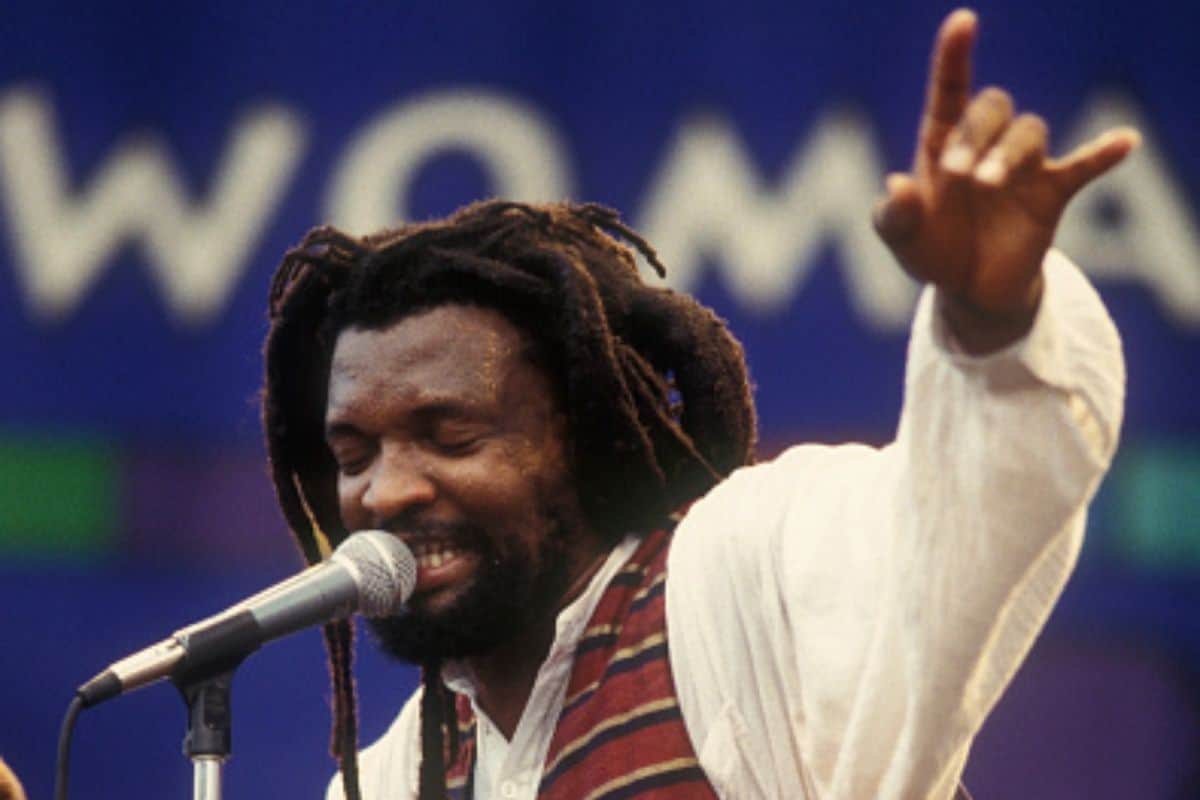
In 1996, when record company Gallo was 70 years old, South African artist Lucky Dube received the Best Selling African Musician award at the World Music Awards.
Now, just three months before Gallo — South Africa’s oldest independent label — marks its 100th anniversary, the company’s Head of Synch, Curation and Playlists, Kwelagobe Sekele, says Dube remains its all-time highest-selling artist.
“Lucky Dube, who till today, stands as an African world icon alongside Ladysmith Black Mambazo, Miriam Makeba and Hugh Masekela whose recording careers started at Gallo,” Sekele tells The Citizen.
As Sekele expressed, it’s no small feat to be the highest-selling artist in a company that has been home to the country’s most iconic musicians.
Dube was brutally murdered in October 2007.
Despite the gruesome act that took his life, his music — comprising more than 20 albums, from 1981 to his final album, Respect, in 2006 — remains etched on the hearts of many.
ALSO READ: ‘I think of an African-born leader,’ says Mi Casa’s Mo-T on Hugh Masekela
Gallo, Africa’s soundtrack
Founded in 1926 by Eric Gallo, Gallo began as a small record label in Johannesburg and grew into arguably the most significant record company in South African music.
Being home to some of the most prominent artists on the continent in 100 years, Gallo’s catalogue is inevitably extensive.
“The catalogue is long, wide and deep for any digger, collector, culture seeker, student searching for South African music or the history of music on the continent through song,” Sekele shares.
The Kwani Experience frontman adds that this catalogue includes music videos as well. He describes Gallo as truly Africa’s Original Soundtrack.
“There’s a lot of music by any genre, style, category or mood that an average, or even avid music user, may not be aware of and is available for streaming, downloading or licensing.”
The catalogue is the biggest on the African continent, and even the world, he says.
“Our ongoing digitisation process, and all the classics plus the rare music it’s been unearthing, is proof of this.”
As a way of celebrating the 100 years, Sekele says there are several curatorial and editorial efforts, such as playlists on streaming sites and on their platforms, honouring icons’ birthdays, historical album anniversaries, film placements, and remixes, amongst others.
ALSO READ: Young artists reflect on Brenda Fassie’s legacy on what would have been her 61st birthday
A century of learnings
As the first and oldest record company, like the first child in the family, it has had its fair share of lessons over the years.
The biggest of these lessons is probably the treatment of one of Gallo’s first biggest names, Solomon Linda, the original composer of Mbube.
While working as a record packer at Gallo, Linda improvised Mbube during a recording session with company talent scout Griffith Motsieloa and his band the Evening Birds.
The song was successful in South Africa between 1939 and 1949; by 1948, it had sold around 100,000 copies.
Linda ultimately sold the rights to Gallo for what was equivalent to $2 (US) at the time.
According to British law in effect in South Africa at the time, those rights should have been returned to his family after he died in 1962.
Linda, also known as Solomon Ntsele, died a pauper, with his widow struggling to raise the funds to erect a tombstone for him.
After hearing Linda’s Mbube, US singer-songwriter Peter Seeger recorded an eerily similar song titled Wimoweh in 1952.
The song was later adapted into The Lion Sleeps Tonight, which achieved unfathomable global success through its use in Disney’s Lion King movies.
Around 2000, South African author Rian Malan stated that the subsequent musical groups who covered, adapted, and essentially stole the track were not aware of what they were doing.
However, their managers and legal teams were well aware, as the owner of Gallo had contacted them.
The US team claimed that South African copyright laws were not legally binding because the two countries had not signed a copyright agreement.
However, around the 2000s, his family, with the help of Gallo, sued Disney and others for using Mbube in The Lion King without proper compensation.
ALSO READ: ‘He seems bitter’ – Fans weigh in on Caiphus Semenya’s demand for royalties from AKA songs
Adjusting to the changes
“Definitely the importance of copyright ownership, effective rights management and representation, including empowering artists through the types of deals we do, including (but not limited to) fair revenue share in this regard,” says Sekele.
He notes that a lot has changed since 1939.
“There are better models in which Gallo conducts business today, and we still have long-standing relationships with many artists whose music we represent, release or publish.”
One of the most significant changes in music today is how the art form is consumed. People no longer rely on physical copies but listen to music digitally.
Sekele says they’ve fully embraced this shift.
“Aligning our artist-partners to where the rapidly growing music tech is, while seeing how we can service them and their fans beyond just having the music available on digital platforms,” he says.
“Also, negotiating our way through the AI/4IR [Artificial Intelligence and the Fourth Industrial Revolution],” he adds.
“While remaining true to artistry, making sure we all have a fair say in all of it. We are also building our own music tech infrastructure.”
NOW READ: Gallo denies robbing Thami Shobede of his royalties



